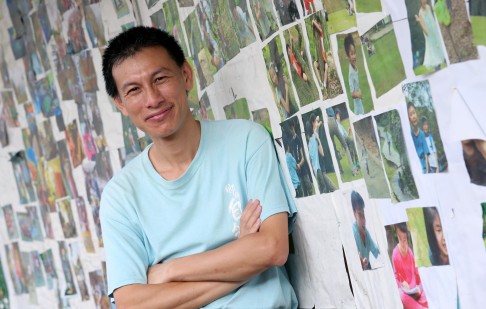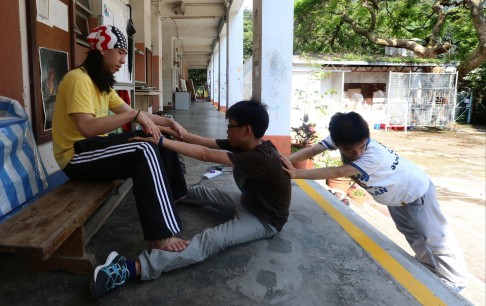Frustrated Hong Kong parents turning to alternative education
Frustrated by Hong Kong's rigid, test-oriented schools, more parents are seeking alternatives
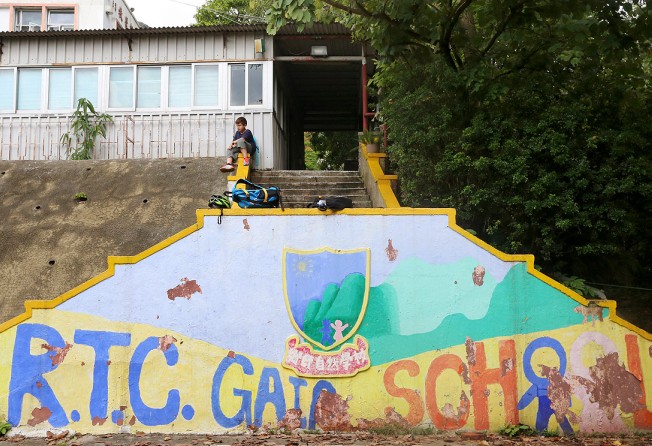
RTC Gaia School in rural Tuen Mun organises what it calls a "life conference" every week, attended by all 60 pupils. There, different events and issues revolving around the community are discussed. One week in April, the topic was cruelty in nature.
The school had a rat problem, and some of the students had just witnessed one of the school's two cats devour one of the rodents.
One student from Primary 1, nicknamed Frog - in keeping with the school's mantra that everyone have nature-related nicknames - suggested that Gaia introduce giant pitcher plants to scare away the rats. A Primary 6 pupil named Saltwater Crocodile said the school toilets should be cleaned frequently to improve hygiene.

Gaia's is certainly an atypical approach to education - and one that is increasingly sought by Hong Kong parents.
Alternative schools like Gaia provide creative curriculums in what directors and parents say are more relaxed environments than typical schools.
When Gaia started in 2007, the school had just 14 pupils. Now it enrols almost 70.
"Nowadays, the pressure of studying on children is becoming greater and kids are feeling less and less happy," said Gaia's founder and principal Yip Chung-sing, nicknamed Starfish at the school. "There needs to be a school that educates children through nature, and values their inner development."
Last year, Hong Kong's first Waldorf primary school started, adopting the educational philosophy of Austrian spiritualist Rudolf Steiner. The school says it emphasises developing children's creativity, artistic expression, social skills and critical thinking.
The International Montessori School, the only Montessori primary school in Hong Kong, has also become wildly popular. By emphasising a creative and bilingual learning environment, the school has grown from 68 pupils when it opened in 2002 to 600 today - and more than 800 names are on its waiting list.
More parents are choosing to teach their children at home, as well. Although there is no official figure about the number of families teaching children at home, many parents in that circle say they have seen more of their friends and acquaintances joining. Fifty-one families take part in an online group for parents in Hong Kong. A similar Facebook group has 81 members, with many having joined in recent months.
Executive Councillor Bernard Chan sent his two sons to Gaia, before his wife started her own alternative primary school, Grace Christian Academy, in North Point in 2011. That school focuses on developing children's speaking abilities and physical strength and skills, to deal with different life challenges. The couple originally started off homeschooling their two boys.
But parents seeking new paths of learning face various obstacles, including finding suitable venues for their schools and sorting out legal issues, as the concept is still barred by city law.
Parents who choose alternative approaches also face criticism that their children will not be equipped to succeed when they return to mainstream secondary schools and universities.
But Dr Ng Shun-wing, head of the Institute of Education's department of education policy and leadership, says an increasing number of parents are upset with the mainstream educational system, in which many teachers are unhappy, most children are focused on exams and students are reared to compete.
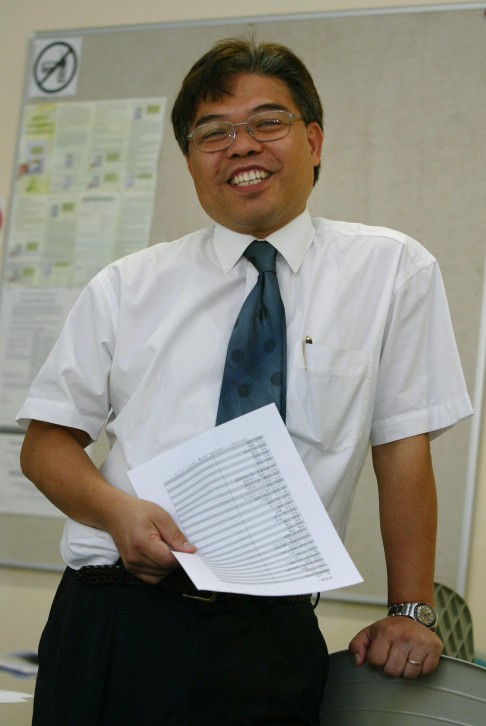
Before encountering the Waldorf concept, Bian Yu Bui-yan was a typical "tiger mother". When her son was three months old, she arranged a daily schedule of activities. Every 15 minutes, she showed her son flash cards of English-language words, then played songs in different languages, including German. She also bought him more than 100 books.
When the boy reached two, she sent him to two different kindergartens every day - a local one and an international one - and, at the same time, brought him to six interest groups each week.
"But gradually I found him losing interest in everything," says Yu. "He slept all day long and felt very insecure. He didn't dare stay in his room by himself even during daytime, and he didn't dare to touch sand or play on a swing or a slide."
After more than a year, Yu brought the boy to a psychologist. The diagnosis: sensory processing disorder.
"The doctor gave me the inconvenient truth - it was not his problem but mine," she says. "I had been sending him to various indoor classes, but he had no real-life or outdoor experience."
Eventually, both the mother and the son had to undergo therapy. It took 18 months of sensory training, sleeping and relaxing without any schooling, for the boy to recover, the mother said.
Later, Yu discovered Waldorf, which teaches kindergarten and primary-age children with games, arts and crafts. Pupils don't delve into academics until secondary school. By then, the school says, their interest in reading and exploring has been developed through pleasant learning experiences.
Last September, Yu started the private Yeuk Sau Waldorf Primary School - the first of its kind in Hong Kong -when her son reached seven and was set to enter primary school.
But the school has not been able to obtain a licence because it hasn't found a permanent building. Instead, six children of like-minded parents meet in a rented house.
The biggest difficulty in a city where rents far exceed the accounts of most schools remained finding an ideal campus, Yu said. She wants a site close to nature, so the children can be engaged in agriculture, biology, local history and geography.
She hopes the government will assign her school a site, but the competition is fierce.
Yip said it took him two years to secure a permit to start Gaia, after being "kicked around" by the departments of home affairs, land and education. He said the process became smoother only after he persuaded the operator of a closed village school to allow him to use the campus.
Yu said the government could show its willingness to support a more relaxed and flexible curriculum by granting sites to alternative schools.
In Taiwan, there are at least three government-funded public Waldorf schools, prompted by rising demand from parents, according to Taiwan's Ministry of Education.
The majority of Hong Kong parents, though, don't send their children to alternative schools. Some say they worry that their children won't learn the skills they need for mainstream secondary schools. As if to sidestep that possibility, both Gaia and Yuk Sau are planning to start secondary sections.
But other parents say an alternative education can develop children's independence, critical thinking and desire to learn.
Din Khalifa Jan, whose son is studying at Gaia, says she appreciates the simple lifestyle that the school advocates and how it lets children develop in different ways.
At Gaia, pupils study minimally and spend time on sports, the arts and agricultural activities. They cook their lunches with vegetables they grow and play prosecutor and defence lawyer at the "life court" to solve everyday in-school conflicts.
"Mainstream schools aim to make copies of an academically perfect child, but here you have unlimited possibilities," Jan said. "Through playing and embracing nature, kids can gradually know themselves better, be more open-minded and find out which way they want to go."
Such an upbringing would make them adaptable and open to learning new things and better able to survive in a fast-changing society, Jan added.
Teachers feel helpless ... as well, because they can’t really educate
Adeline Lee Lai-ying said she transferred her son to Yeuk Sau after a year in a mainstream primary school because she found that the boy, now eight, was losing interest in things around him and trying to avoid studying. She said her son wilted under the pressures of a heavy load of homework and frequent exams. His face started twitching every time an exam was about to begin.
"Parents who choose alternative schools understand that children can't be compared because they have their own talents, and every family is different," Lee said. "They are OK if their kids have slow starts."
The same sentiments are shared by parents who choose homeschooling.
In years past, these parents feared that the discovery of their choice would invite fines, even jail. Under the Education Ordinance, parents who fail to send their children to primary or secondary school without a reasonable excuse can face fines of HK$1,000 and three months in prison.
The government has punished parents for breaking the law. In 2009, the parents of a 10-year-old were sentenced to 40 days in jail after removing their child from a primary school for a year, claiming the Tai Po school's fees were excessive.
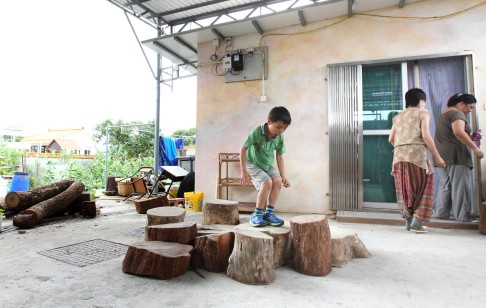
"The bureau does not encourage parents to teach children at home," said a spokeswoman, adding that the office would assess special cases, taking into consideration parents' reasons and their children's educational needs.
While the bureau said it had not approved any homeschooling applications in the past five years, several parents said they had taught their children at home with its knowledge.
School officials visit some home schools regularly, checking the curriculums and talking with the children, according to six parents who homeschool.
To these parents, the government's tacit acceptance equals de facto approval from the city's authorities.
Karen Chow has been teaching her daughter, now seven, at home for two years. Chow initially thought the situation would last only until she found the girl a suitable school, but she changed her mind quickly.
"The biggest benefit of homeschooling is that the timetable is very flexible," the 38-year-old mother said. "For example, we can visit the dinosaur exhibition at the Science Museum on a weekday to avoid the huge crowds there over weekends. We also arrange many hiking trips for her to learn about nature and different places in Hong Kong."
Pinky Cheng Mei-nang, 38, is another tiger mum-turned-revolutionary. She once applied to more than 30 kindergartens across several districts for her son, forcing the then two-year-old to endure several interviews a week, sometimes two in a day.
After her son's first year in an international primary school, a teacher told her that the boy's academic performance was "far behind" others and that she needed to hire a tutor. Cheng realised that her son, who is now seven, had lost his confidence.
Last April, she started teaching the boy herself.
"I don't care if he loses at the starting line as long as he grows up into a healthy person," Cheng said. "Traditional schools are getting crazier and crazier. Ten-year-olds now have to take tutoring classes until after 8pm every day and when they finally get home, there's still a lot of homework waiting for them. The whole system is twisted."
But Ng of the Institute of Education doubts alternative education will one day become mainstream.
"As long as children are judged, completely or partly, by exams, most parents will still choose academically-focused schools, and alternative schools will never become mainstream," he said.
Still, Ng said that a government that was serious about improving education would subsidise more alternative schools and encourage their growth to allow parents more choice.
"The exam-oriented education system can be changed gradually, but the pressure needs to be reduced as soon as possible," he said. "If not, there will only be more tiger mothers."
